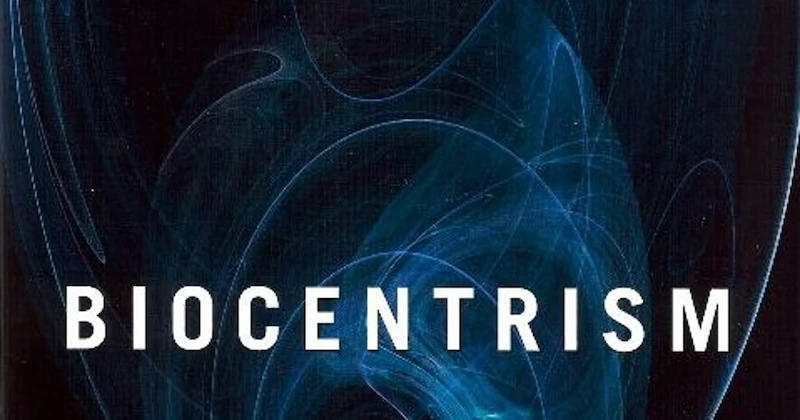Table of Contents
Introduction
Biocentrism has sparked intense debates and discussions within both scientific and philosophical circles since its inception in 2007 by Robert Lanza. This theory suggests a radical shift in our understanding of the universe, proposing that consciousness is the driving force behind everything, with life and consciousness being fundamental, and everything else merely secondary. However, despite its intriguing propositions, biocentrism has faced substantial criticisms and skepticism. In this article, we delve into the core tenets of biocentrism, examine its arguments and criticisms, and explore alternative viewpoints to provide a comprehensive understanding of this controversial theory.
Understanding Biocentrism
Biocentrism, as articulated by Robert Lanza, challenges traditional scientific and philosophical paradigms by asserting that consciousness is the cornerstone of the universe. According to this theory, the universe is not a physical entity but a mental construct shaped by consciousness. Life and consciousness are considered primary, with all other aspects of existence deriving from them. Lanza’s seminal work, “Biocentrism: How Life and Consciousness are the Keys to Understanding the True Nature of the Universe,” laid out the foundational principles of this theory, paving the way for extensive debate and scrutiny.
Key Arguments for Biocentrism
Consciousness as the Core: Biocentrism offers an intriguing explanation for consciousness, a phenomenon that has long perplexed scientists and philosophers alike. By positing consciousness as the central force driving the universe, biocentrism provides a framework for understanding our self-awareness and subjective experiences.
Perception and Existence: Biocentrism emphasizes the role of perception in shaping our reality. It suggests that the apparent fine-tuning of the universe for life can be attributed to the centrality of life and consciousness in the cosmic order. From this perspective, the universe appears tailored to accommodate the existence of conscious beings.
Why is Biocentrism Debunked?
While biocentrism offers an intriguing perspective, it faces significant critiques:
Lack of Empirical Evidence: Perhaps the most significant criticism leveled against biocentrism is its lack of empirical evidence. While the theory offers a novel perspective on consciousness and existence, it fails to provide tangible evidence or testable predictions that could validate its claims. Without empirical support, biocentrism remains speculative and unverifiable according to the standards of scientific inquiry.
Contradiction with Modern Physics: Biocentrism’s foundational principles appear to contradict established laws of physics, which describe the universe as a measurable, physical entity governed by mathematical principles. While biocentrism posits the universe as a mental construct shaped by consciousness, modern physics relies on empirical observations and mathematical models to describe the workings of the cosmos. This misalignment with established scientific frameworks raises significant doubts about the validity of biocentrism as a scientific theory.
Exploring Alternative Perspectives
While biocentrism offers a provocative lens through which to view the universe, alternative scientific and philosophical theories provide more robust explanations for the nature of existence. These perspectives, grounded in empirical evidence and rigorous testing, offer comprehensive frameworks that do not rely solely on consciousness as the primary factor.
Materialism and Reductionism: Materialist and reductionist approaches to understanding consciousness and existence focus on the physical properties of the universe and the processes that govern them. These perspectives prioritize empirical evidence and seek to explain consciousness as an emergent property of complex neural networks, without invoking consciousness as a fundamental force shaping reality.
Panpsychism: Panpsychism proposes that consciousness is a fundamental feature of the universe, present at all levels of existence, from subatomic particles to complex organisms. Unlike biocentrism, which positions consciousness solely within living organisms, panpsychism suggests that consciousness permeates all aspects of reality. While still speculative, panpsychism offers a more inclusive framework for understanding consciousness and its relationship to the cosmos.
Conclusion
Biocentrism presents a thought-provoking perspective on the universe, placing consciousness at the forefront of cosmic dynamics. However, its lack of empirical evidence and divergence from established scientific principles undermine its credibility as a scientific theory. While biocentrism has sparked valuable discussions about the nature of consciousness and existence, it is essential to approach it with a critical mindset, considering both its merits and limitations. By exploring alternative viewpoints and engaging in rigorous scientific inquiry, we can continue the quest for understanding the true nature of the universe, leaving no stone unturned in our pursuit of knowledge.
You may like – Tickzoo: Unraveling the Enigma of a Controversial Platform

